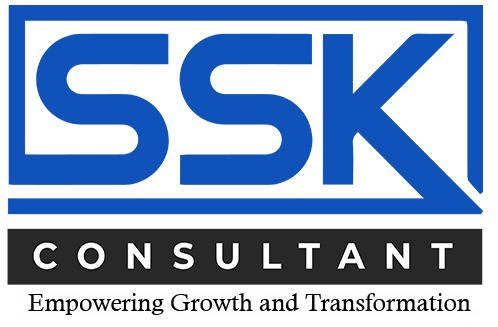How Business Consulting Can Efficiently Show Growth

Business consulting is a management discipline that is used to help firms diagnose their issues, define their strategies, and improve their performance. The current business world requires the help of a professional advisor. The services of business consultants are valuable because they provide companies with all the necessary knowledge, experience, and industry standards to overcome difficulties and take advantage of opportunities. Thus, they can come up with fresh ideas that may not be considered by the in-house team and identify problems that the latter may not even notice. They know various fields like strategy, operations, finance, and technology that enable organizations to come up with sound strategies, increase their productivity and efficiency, and gain competitive advantages. They also help in change management and provide information to aid decision-making through analysis and research. Thus, business consulting helps organizations gain knowledge and skills that would enable them to survive in the market and achieve sustainable development.
Types of Business Consulting
There are several types of business consulting, each focusing on different aspects of an organization:
1. Strategy Consulting
Strategy consultants initiate the process of guiding organizations on their future strategies. This entails market intelligence, market decision-making, competitive strategy, and strategic planning. By formulating a company’s vision with specific goals, strategy consultants ensure continuous growth. They also help identify new markets and risks that might be present, thus keeping the organization strategic and progressive. Strategy consulting produces efficient results that outline the right path to follow in the future and gain a competitive edge.
2. Operations Consulting
Operations consultants are mainly involved in enhancing business processes. They audit processes, understand the gaps, and suggest changes to help increase efficiency and decrease expenses. Thus, efficient operations allow for better resource management and, therefore, an increase in the company’s profit. They also adopt lean management systems and quality assurance systems to enhance production and minimize wastage. Efficient management promotes the growth of the business and, at the same time, delivers excellent services and products to the public.
3. Financial Consulting

They help business organizations improve their financial management. Some of the services that they offer include budgeting, financial planning, investment, and risk management. Therefore, financial management is a critical factor in ensuring that an organization is liquid enough to support its growth needs. They also assist in improving capital management and cost control to support the firm’s financial stance. Strong financial tactics help protect the organization against economic oscillations and help it invest in development effectively.
4. Human Resources Consulting
They help in the planning, implementation, and management of people in organizations by designing the right strategies for the workforce, increasing the employees’ productivity through enhanced motivation, and encouraging compliance with the legal framework in relation to employees. Employees who are motivated and well-managed are the driving force of any organization in the achievement of its goals. They also design management development strategies, including the development of leadership and succession planning to produce future leaders. Effective HR consulting entails that the organization is able to acquire the right personnel, keep them, and train them in order to improve performance.
5. Marketing Consulting
Marketing consultants are professionals who assist business organizations in coming up with strategies that can be used to enhance the marketing of products and services. These are market analysis, branding, digital marketing, and customer experience plans. Effective marketing can significantly increase the position of a company in the market as well as its income. They also assess consumers’ behavior and the tendencies of the market to ensure a successful targeted campaign. Marketing strategy helps a company promote its products and services, hence creating a market niche that it can sell to targeted customers.
How Consulting Helps Organizations Grow
The following are the strategic advantages that have made business consulting to be of great importance with regard to the growth of organizations. On the other hand, consultants are not clouded by the emotional aspect of the business; they are in a position to identify and solve problems that may have escaped the employees’ notice and, therefore, minimize the chances of making wrong decisions, which may lead to setbacks. In this case, they are able to implement the right strategies and measures due to their exposure to various organizations, thus increasing efficiency and productivity. Another of the most significant functions of consultants is that they assist in change management; in this way, those changes that are intrinsic to growth do not create a great deal of difficulty. Having the capacity to offer strategic information and information formulated from data analysis, they assist in decision-making and assist leaders in making the right decisions, which in turn leads to strategic actions. Also, consultants concentrate on the optimization of resources, which comprise people, processes, and technologies, by determining the areas of the system that are ineffective and lead to wastage, thus cutting down on costs and boosting profits. The extensive strategies for business growth include market growth, product differentiation, strategic alliance, opportunity identification, and evaluation for sustaining business growth. In essence, business consulting is the process that helps organizations navigate through challenges, grasp opportunities, and develop in the business environment.

Common Issues Addressed by Business Consulting
Business consulting deals with numerous concerns that may hamper the development of the firm. Some of the common problems include: Some of the common problems include:
1. Operational Inefficiencies
This means that poor processes use a lot of resources and time and thus negatively impact the organization's output. Operations consultants can pinpoint problems within a company's processes and suggest ways to optimize them to increase effectiveness.
2. Financial Challenges
This paper aims to analyze the negative consequences of poor financial management for an organization's stability and development. Financial consultants assist companies in better handling their financial matters, thus enabling them to have the capital required for growth-oriented activities.
3. Talent Management
Human resource management is a crucial function of almost every organization, and one of the biggest problems is how to attract and retain star performers. HR consultants create policies and procedures to help organizations attract, engage, and train employees to meet the company's goals.
4. Market Competition
In today's market, where competition is high, it may be challenging to make a difference. Marketing consultants are professionals who assist companies in identifying their position and devising ways to gain a competitive advantage and increase sales.
5. Technological Advancements
Technological advancement should be pursued to sustain a business's competitiveness. Technology consultants help companies integrate new technologies into their business and use them to their advantage. Organizations always require the assistance of business consultants to attain their business objectives in the market. Thus, consultants consider various issues and offer their recommendations, which help organizations improve the efficiency of their processes, make correct decisions, and seize new opportunities. From increasing the productivity of a business to helping it manage its finances, develop its employees, or market its products and services, consulting solutions help organizations achieve their goals for the long term. This paper will argue that in the ever-changing business environment, consultants will increasingly play an essential part in companies' growth.

